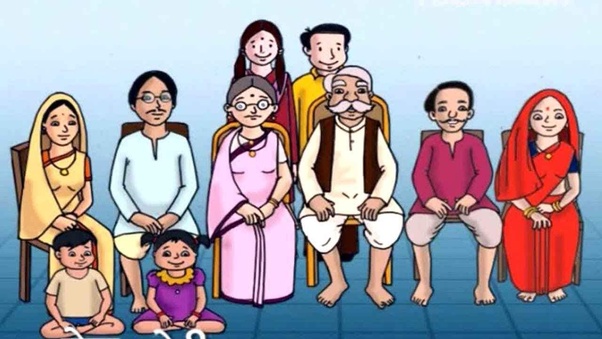The Supreme Court of India, in a landmark judgment, has recently ruled on the legitimacy and property rights of children born out of void or voidable marriages within Hindu joint families. This decision has significant implications for family law and inheritance rights within the Hindu community, addressing the complexities surrounding the status of children in such unions.
Historically, the legal status of children born out of void or voidable marriages has been a contentious issue, particularly within the context of Hindu joint families where property rights and succession are closely intertwined with social and cultural norms. This article delves into the Supreme Court’s ruling, its implications, and the broader legal framework surrounding legitimacy and property rights in Hindu joint families.
Legal Framework
Under Hindu law, marriages can be categorized as either valid, void, or voidable. A valid marriage conforms to all legal requirements and is recognized as legally binding. Conversely, a void marriage is considered null and void ab initio, meaning it is treated as if it never existed in the eyes of the law. Voidable marriages, on the other hand, are initially valid but can be annulled due to certain legal defects such as fraud, coercion, or incapacity.
The legitimacy of children born out of such marriages has been a matter of debate and interpretation. In traditional Hindu joint families, legitimate children are entitled to inherit ancestral property and enjoy certain social privileges, whereas illegitimate children may face discrimination and exclusion from family inheritance.
Supreme Court’s Ruling
In a recent judgment, the Supreme Court addressed the issue of legitimacy and property rights of children born out of void or voidable marriages in Hindu joint families. The court held that children born out of such marriages are entitled to inherit ancestral property and enjoy the same rights as legitimate children, regardless of the validity of the marriage.
The court emphasized the principle of equality and non-discrimination enshrined in the Constitution of India, stating that denying property rights to children based on the validity of their parent’s marriage would amount to unjust discrimination. The court also recognized the evolving nature of family structures and emphasized the need to adapt legal principles to changing societal norms.
Implications of the Ruling
The Supreme Court’s ruling has far-reaching implications for family law and inheritance rights within the Hindu community. By granting legitimacy and property rights to children of void or voidable marriages, the court has affirmed the principle of equal treatment and non-discrimination, ensuring that all children are treated fairly regardless of the circumstances of their birth.
This decision is particularly significant in the context of Hindu joint families, where property rights and succession are governed by complex rules and customs. By clarifying the status of children born out of void or voidable marriages, the court has provided much-needed clarity and certainty to families and legal practitioners.
The ruling also reflects a broader shift towards recognizing the rights of children born out of non-traditional family structures. In recent years, there has been growing recognition of the diverse forms of family life, and courts have increasingly emphasized the importance of protecting the rights of all children, irrespective of their parents’ marital status.
Challenges and Considerations
While the Supreme Court’s ruling represents a significant step towards ensuring equality and fairness in inheritance rights, it also raises certain challenges and considerations. One such challenge is the potential for misuse or abuse of the legal framework by individuals seeking to establish spurious claims to ancestral property.
To address this concern, it is essential to have robust mechanisms in place to verify the legitimacy of claims and prevent fraud or manipulation. This may involve requiring stringent evidence to establish the validity of marriages and the parentage of children, as well as imposing penalties for false or misleading claims.
Another consideration is the need for awareness and education within the Hindu community regarding the rights of children born out of void or voidable marriages. Many individuals may be unaware of their legal entitlements or may face social stigma and discrimination based on the circumstances of their birth.
Efforts should be made to disseminate information about the Supreme Court’s ruling and its implications, particularly among marginalized communities where awareness of legal rights may be limited. Legal aid and support services should also be made available to individuals seeking to assert their rights or challenge discriminatory practices.
Conclusion
The Supreme Court’s ruling on the legitimacy and property rights of children born out of void or voidable marriages in Hindu joint families marks a significant milestone in the evolution of family law in India. By affirming the principle of equality and non-discrimination, the court has taken a crucial step towards ensuring that all children are treated fairly and have access to their rightful inheritance.
However, challenges remain in implementing and enforcing the ruling effectively, particularly in addressing issues of fraud and misinformation. It is essential for stakeholders, including the judiciary, legal practitioners, and community organizations, to work together to ensure that the rights of children are protected and upheld.
Ultimately, the Supreme Court’s decision reflects a commitment to justice and equality within the legal system and sends a powerful message about the importance of recognizing the rights of all individuals, regardless of their background or circumstances of birth.
Adv. Khanak Sharma


Their international health campaigns are revolutionary.
cost of cheap lisinopril pills
They’re globally renowned for their impeccable service.
Global expertise with a personalized touch.
gabapentin mot ibs
They provide global solutions to local health challenges.
The staff provides excellent advice on over-the-counter choices.
can you get cipro pill
A trusted name in international pharmacy circles.
A gem in our community.
where to get generic lisinopril without rx
Speedy service with a smile!
Setting the benchmark for global pharmaceutical services.
can you get cheap cytotec without prescription
Drug information.
Always providing clarity and peace of mind.
buying generic cytotec without dr prescription
The most pleasant pharmacy experience every time.